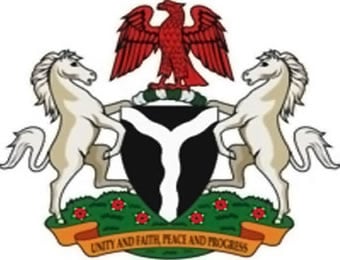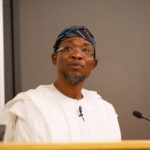But the Federal Government has said the current administration of President Muhammadu Buhari would ensure that every child in Nigeria counts and is catered for in the national scheme of things.
This new figure was contained in the Nigeria Digest of Education Statistics 2014-2016, which was officially unveiled to the public by the Minister of State for Education, Professor Anthony Anwukah, on Friday in Abuja.
The education data also put Benue State as having 663,971 number of out-of-school children, the highest in the federation.
Although, Rivers State, had 922,217 children out of school but the Deputy Director, in the Department of Statistics and Nigeria Education Management Information System (NEMIS), Mr Mathews Nganjiozor, who presented the two documents that were launched by the Minister, said River State only provided the number of children enrolled in public schools.
He explained that the figure of out-of-school children in Rivers was high because all the children in both registered and unregistered private schools in the state were not captured.
The figures of out-of-school children bandied before now oscillated between 10 and 10.5 million out-of-shool children in the country.
Anwukah, in his remark, said the era where states use false data to get more money from the Federal government was over.
He lamented that want has been happening over time, was approximation and without credible data to work with, saying this lack of accurate data to aid effective planning and policy making process had been the bane of education in Nigeria.
He noted that the Federal government in collaboration with the states would strengthen data generation in schools in order to have accurate statistical data work with.
Permanent Secretary, Mr Sonny Echono, in his welcome address, said the current administration places value on every Nigerian child and to ensure every child receives quality education basic education.
Echono, said the two documents, Nigeria Digest of Education Statistics, 2014-2016 and Nigeria Education Indicators, 2016, were another steps towards making sure the every child in Nigeria counts and is well catered for.
He underscored the imperative of data in planning in the education sector, saying it was noted surprising that some states such as Sokoto, Kano, Katsina, Jigawa, Anambra, and Lagos, which have prioritized and adopted a culture of planning were taking the lead in addressing such challenges as out-of-school children and the overall quality of education in their respective states.
He said: “There is shared acceptance that the lack of accurate data has been a lingering issue which has impacted negatively on the nation’s planning process and the image of the country internationally.
“It had become discomforting to attend international fora where statistical evidence is required in the course of discussions, since there is none to present or where in existence, it was obsolete and clearly unreliable.
“These publications, which provided new information and analysis on education in Nigeria, have come at most opportune time when the government is enhancing its commitment to education,” he said.







